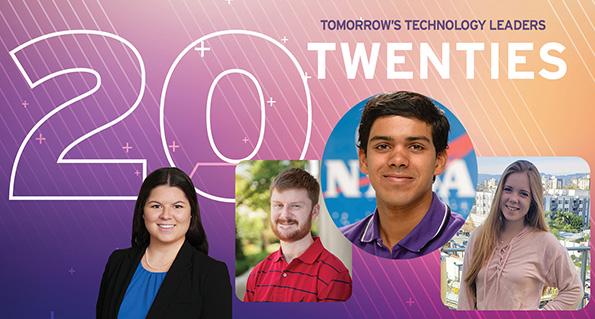
As aircraft become more electric, engines become more efficient and spacecraft seek to conquer new frontiers, the aerospace and defense industry needs fresh ideas from younger generations that grew up with a passion for sustainability and innovative technologies.
Through the annual 20 Twenties program, the Aviation Week Network and the American Institute of Aeronautics and Astronautics (AIAA) recognize young, rising stars within the industry. Top students working to solve aerospace challenges are nominated by universities around the world, and a judging panel comprised of hiring managers, engineers and academics selects 20 exceptional winners. Nominees are evaluated based on academic performance, civic contribution and the value of their research or design projects.
Now in its eighth year, the 20 Twenties program received nominations from nearly 50 schools across seven countries, including 17 new ones. Several winners have served as leaders at their universities in helping students from diverse cultural backgrounds achieve better access to science, technology, engineering and mathematics (STEM) education and opportunities.
As honoree Valerie Bernstein explains: “One of the biggest problems in the sciences today is that we have a tendency to treat science as inaccessible to certain people. This not only shuts people out from the opportunity for support to pursue science, but also manifests into a culture conditioned to fear science as something that’s untrustworthy or incomprehensible.”
One area of STEM outreach on which this year’s winners are heavily focused is women’s representation in aerospace. Not only were more than half of 2020’s winners female, but many of the students have volunteered their time with organizations and nonprofits devoted to increasing women’s representation and interest in STEM.
In addition to highlighting the importance of diversity in aerospace, this year’s group of students emphasized the need for fearlessness and persistence in the face of failure. Winners engaged with other students to advise, mentor and inspire academic resilience, including a student-run initiative at the Massachusetts Institute of Technology dedicated to destigmatizing failure.
“A test failure is not a reason to give up but a reason to take what you’ve learned and continue forward,” says honoree Jane Gillette. “Sometimes, a project gets scrapped. Sometimes, a test doesn’t go how you want it to. But that provides motivation to continue, to succeed and to do great things.”
According to AIAA Executive Director Dan Dumbacher, new ideas and perspectives from this year’s winners will make a mark on the future of aerospace. “We can expect them to bring fresh ideas to the challenges facing us both here on Earth and beyond our Solar System,” he notes. “We look forward to following their accomplishments and how they shape the future of aeronautics and astronautics.”
The winners will be recognized during the 20 Twenties Awards Luncheon and Aviation Week’s 63rd Annual Laureates Awards on March 12 in Washington.
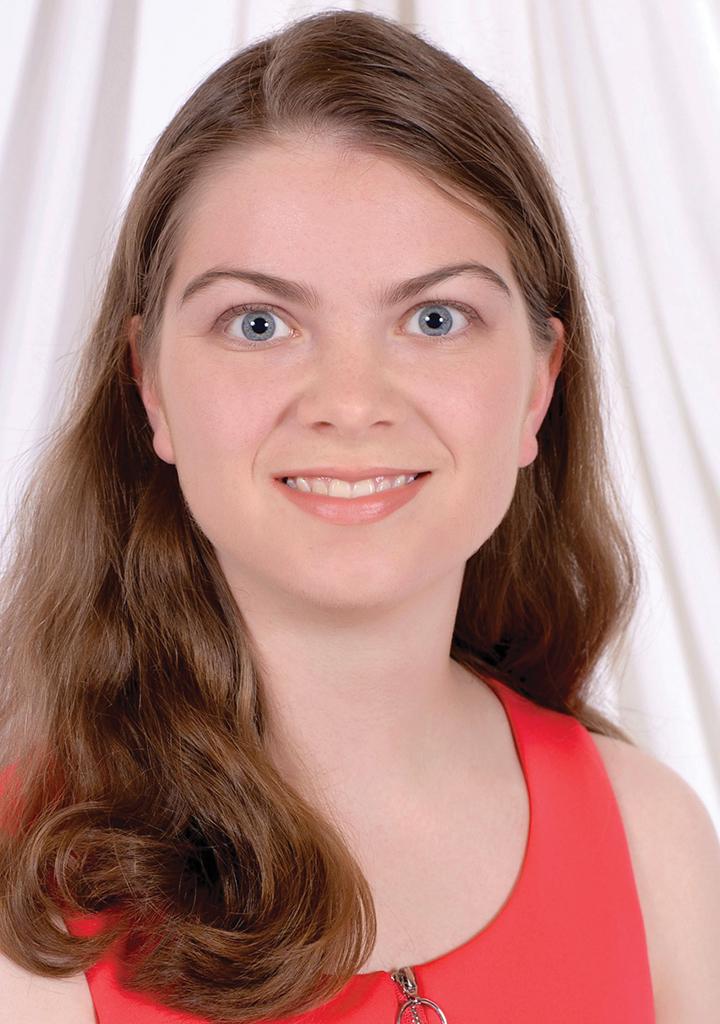
Emily Beckman
Graduate Student, Aeronautics and Astronautics • Class of 2020 • Purdue University B.S. Aerospace Engineering • Class of 2018 • University of Tennessee, Knoxville
After two internships at NASA’s Goddard Space Flight Center, Beckman was selected as a NASA Space Technology Research Fellow. Her research for the fellowship and her master’s degree at Purdue focus on modeling slosh in small-satellite conformal tanks.
During her undergraduate studies, Beckman interned at the NASA Marshall Space Flight Center Space Hardware and Robotics Academy, where she researched future additive
manufacturing improvements needed to make reliable 3D-printed replacement parts for the International Space Station’s life-support system.
Beckman has volunteered with the Space Public Outreach Team and Letters to a Prescientist Program to improve youth STEM outreach.
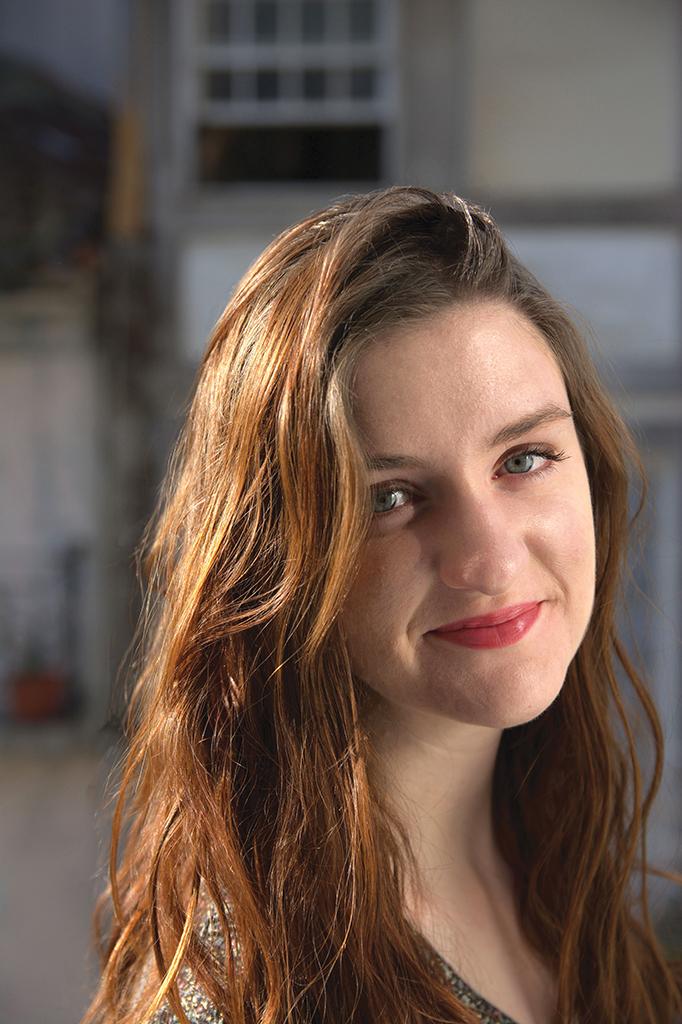
Valerie Bernstein
M.S. Aerospace Engineering Sciences • Class of 2019 • University of Colorado Boulder B.S. Astronomy and Astrophysics • Class of 2017 • Villanova University
During her studies, Bernstein focused on researching how space weather affects Earth and technology in space, including how to improve modeling and forecasting capabilities for atmospheric drag. She was selected for fellowships at the National Science Foundation and Los Alamos National Laboratory.
Bernstein is passionate about promoting science and making it more accessible to the public. To further these efforts, she serves as director for the University of Colorado (CU) Boulder’s STEMinar organization to promote interdisciplinary science communication, and she volunteers as a CU Science Ambassador to create space weather-related activities for youth outreach events.
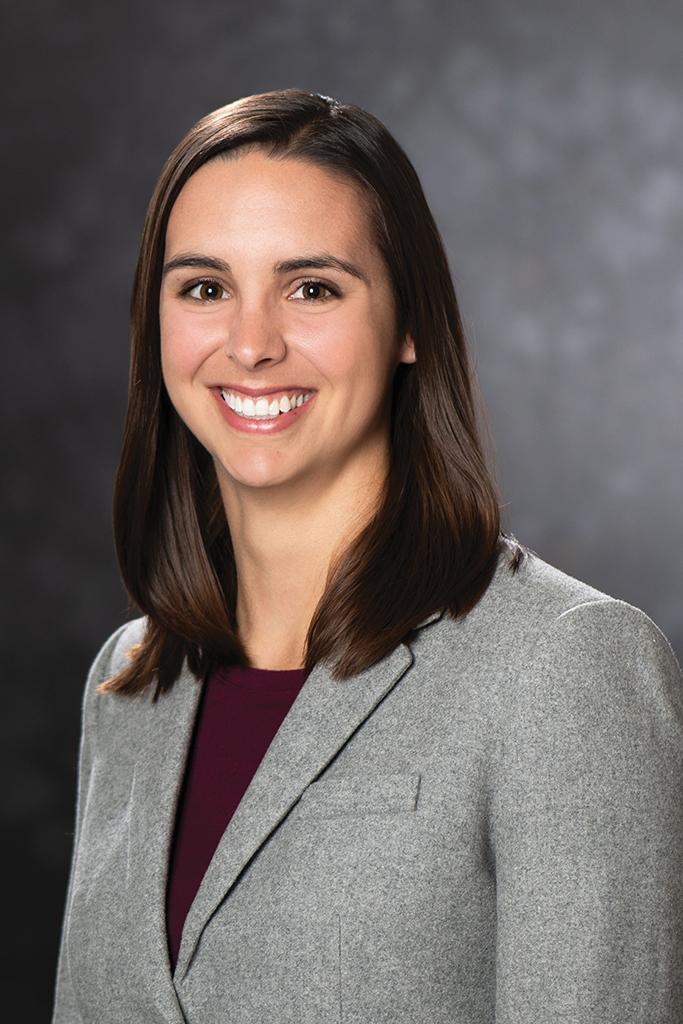
Kate Byrd
M.S. Engineering Sciences • Class of 2019 • Harvard University B.S. Bioengineering • Class of 2015 • Clemson University
As an associate technical staffer at the MIT Lincoln Laboratory, Byrd is researching miniature antenna designs to enable smaller systems with higher data speeds for Earth-to-space and satellite-to-satellite communications. She received a Lincoln Scholar award to pursue her Master’s degree at Harvard and was selected for the National Science Foundation’s Graduate Research Fellowship Program and the Draper Fellow Program.
To spread her passion about diversity in engineering, Byrd has mentored freshmen girls through Clemson’s Women in Science and Engineering program and volunteered with the Junior League of Boston. She also serves as chief operating officer of Girls Who Build, organizing workshops for high schoolers with topics ranging from photography and music to climate change.
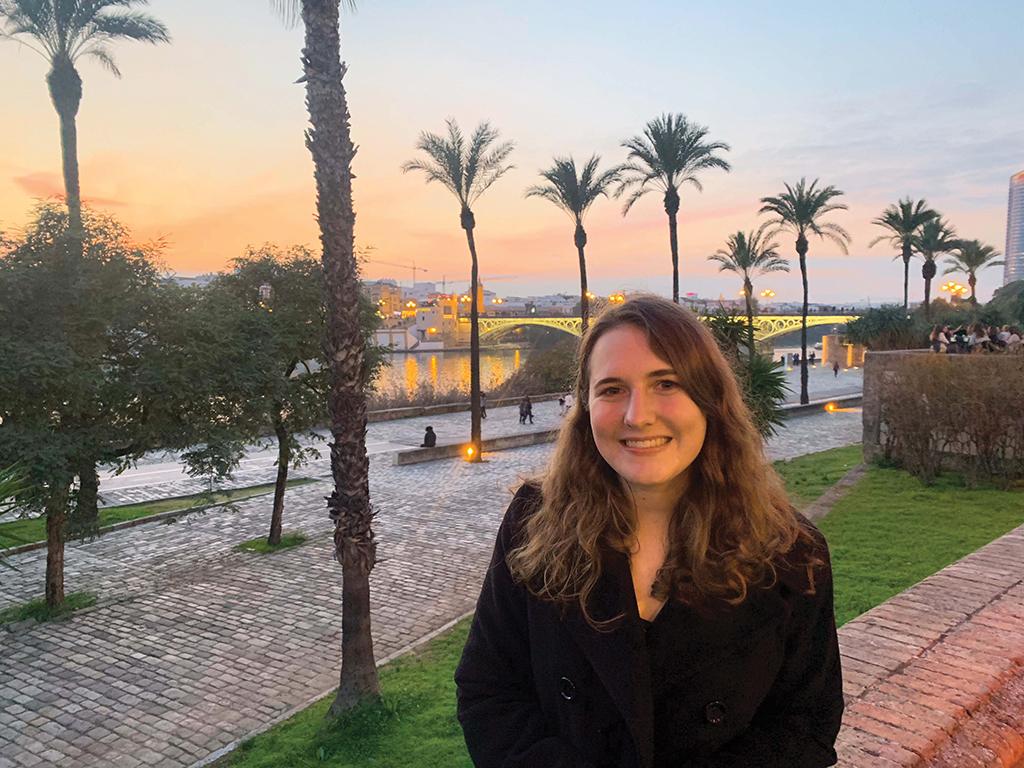
Katherine Carroll
M.S. Aeronautical and Astronautical Engineering • Class of 2021 • Massachusetts Institute of Technology B.S. Aerospace Engineering • Class of 2019 • University of Illinois Urbana-Champaign
With a passion for giving back to the community, Carroll has participated in programs such as Habitat for Humanity and Entrepreneurs Without Borders and mentored engineering students as president of her university’s Women in Aerospace organization.
She has interned at SpaceX, NASA’s Jet Propulsion Laboratory and The Aerospace Corp. As technical project manager at the Illinois Space Society, she led a team of undergraduate students to design, manufacture and test a sharp-edge detection and suppression device for NASA’s Micro-G Next Challenge.
At MIT, Carroll is researching socio-technical system performance and its applications within aerospace and defense.
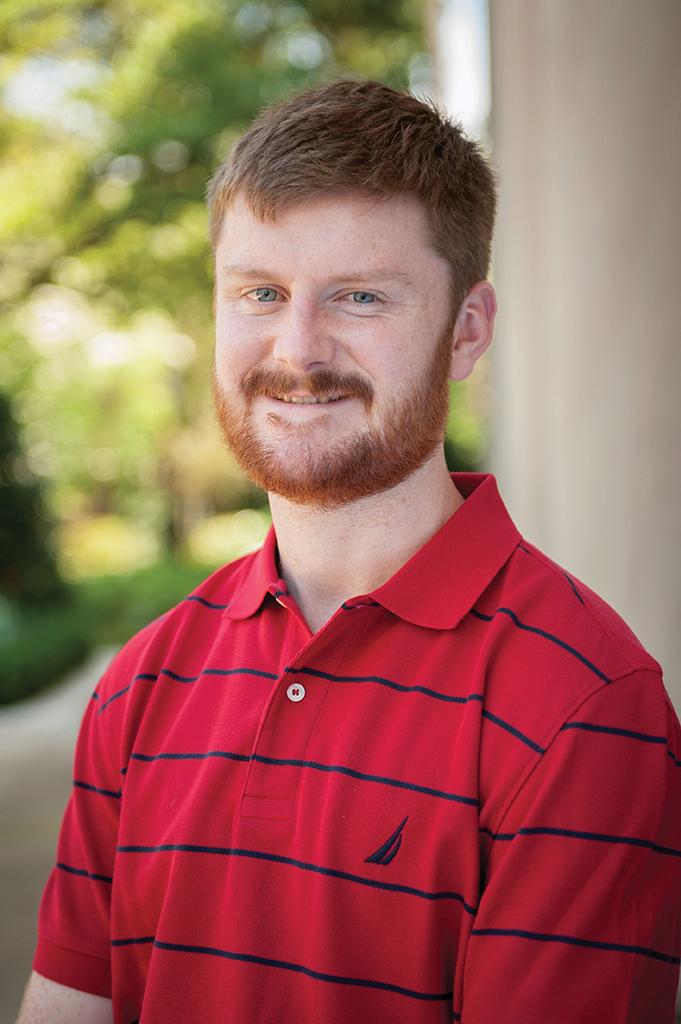
Sean Devey
Graduate Student, Aerospace Engineering • Class of 2020 • The University of Alabama B.S. Aerospace Engineering • Class of 2018 • The University of Alabama
In his graduate studies, Devey is using technology inspired by the microstructure of the shortfin mako shark’s skin to improve efficiency, controllability and noise reduction of aerodynamic surfaces. He believes future iterations of his microflap prototypes could be integrated into a variety of aerospace vehicles. The project has received funding from Boeing, the U.S. Army and the National Science Foundation.
Devey interned at Boeing and MIT’s Lincoln Laboratory and served as vice president for the Tuska UAV team at Alabama, which created open workshops for students on topics such as 3D printing, aircraft design and avionics. He has volunteered with several organizations devoted to renovating or constructing homes for impoverished communities.
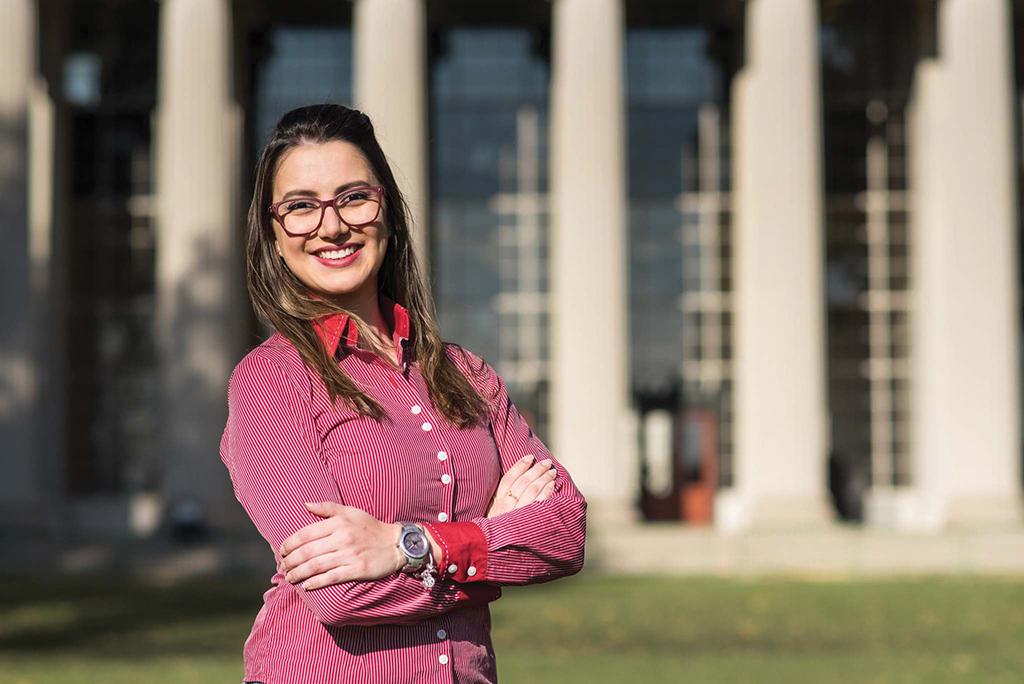
Paula do Vale Pereira
M.S. Aeronautics and Astronautics • Class of 2019 • Massachusetts Institute of Technology M.S. Thermal Science and Engineering • Class of 2017 • Federal University of Santa Catarina B.S. Business and Management • Class of 2015 • State University of Santa Catarina B.S. Mechanical Engineering • Class of 2014 • Federal University of Santa Catarina
At MIT, do Vale Pereira has served as mechanical system lead for a deformable mirror demonstration mission cubesat and a folded lightweight positioning system, both of which are aimed at better exoplanet detection methods. She has received the Amelia Earhart Fellowship and was chosen as one of MIT’s Graduate Women of Excellence.
She serves as mentoring and outreach director in MIT’s Graduate Women in Aerospace Engineering group. She has also developed several nongovernmental organizations in Brazil to help underprivileged students.
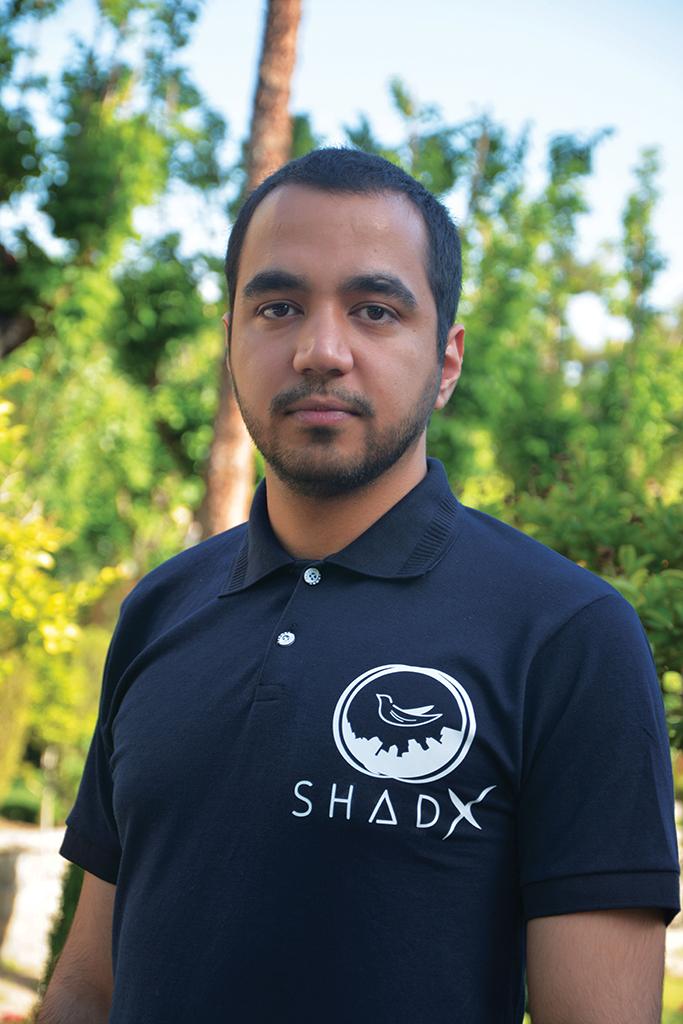
S. Reza Fattahi M.
Graduate Student, Aerospace Engineering • Class of 2020 • Sharif University of Technology B.S. Aerospace Engineering
Class of 2017 • Sharif University of Technology
As treasurer of the university’s student environmental group, Fattahi became interested in sustainable solutions for aviation such as electric vertical-takeoff-and-landing (eVTOL) transportation systems. That led to his master’s thesis work: designing a robust control system for urban transportation eVTOLs. As project advisor, he helped lead his team to first place in last year’s AIAA Graduate Team Aircraft Design Competition.
He established the aerospace engineering department’s student office for aerospace design competitions, where he mentors and pursues company sponsorships for student teams. He has interned at Farsco Aviation Maintenance, Repair and Overhaul Center and works part time as a configuration development engineer at SAMAD Aerospace, where he is helping develop the company’s Starling Jet concept.
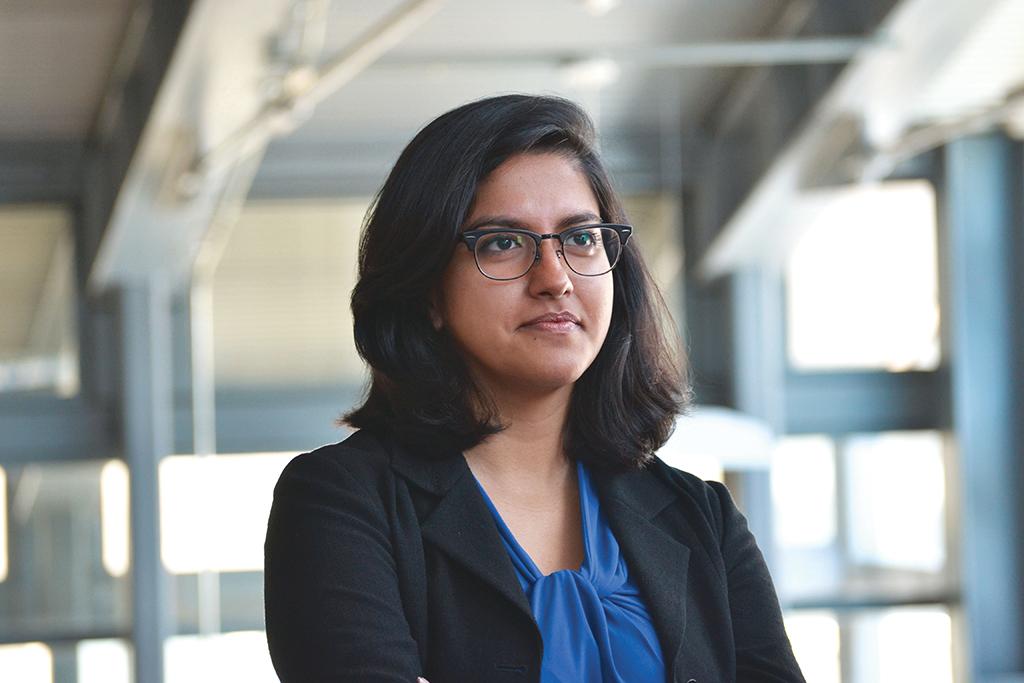
Kanika Gakhar
Graduate Student, Aeronautics and Astronautics Engineering • Class of 2020 • Massachusetts Institute of Technology
B.S. Aerospace Engineering • Class of 2018 • Texas A&M University
As a researcher in MIT’s Gas Turbine Lab and a former Whittle Fellow at Rolls-Royce, Gakhar is working to make aircraft engines more efficient by studying the effects of combustor turbulence on high-pressure turbine performance. She also has researched the aeromechanics of natural flapping flight through the development of a hover-capable robotic hummingbird.
She has interned at SpaceX and Boeing.
Gakhar’s passion for mentoring led her to organize workshops at MIT, including an effort to destigmatize failure and inspire academic resilience. She is working to form a startup that uses satellite and UAV-based systems to help provide internet access and monitor climate and health factors in remote and developing areas.
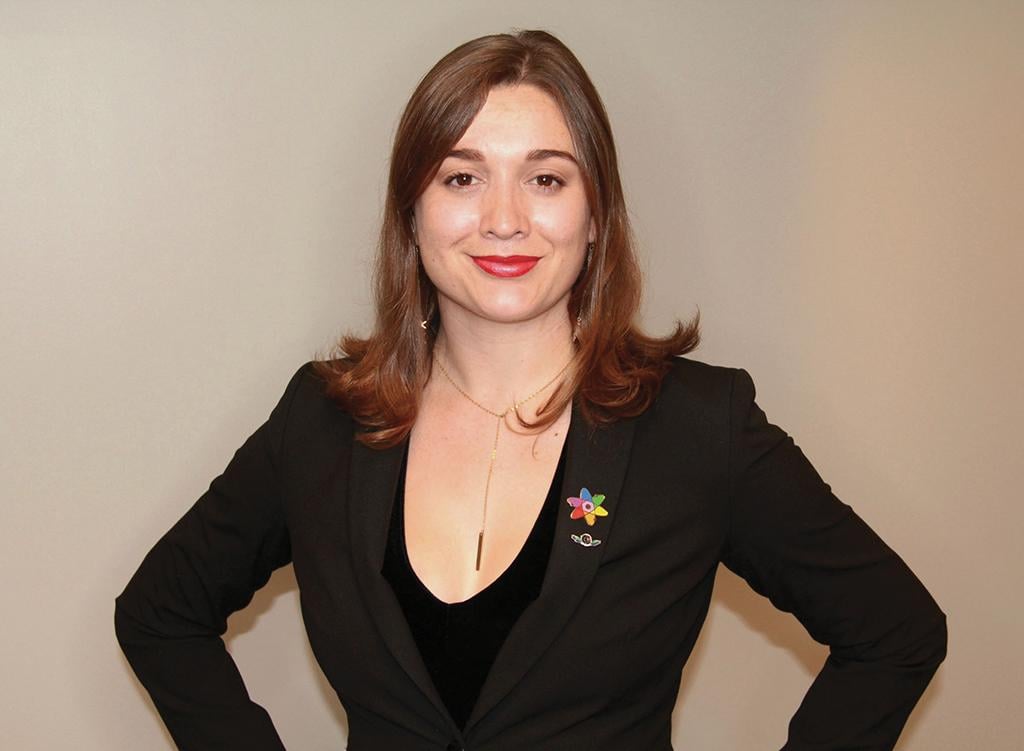
Shannon Gatta
Undergraduate Student, Informatics • Class of 2020 • University of Washington
While serving as an intelligence analyst in the U.S. Army National Guard, Gatta interned at NASA’s Johnson Space Center and Langley Research Center, Stratolaunch and Ball Aerospace. At Ball, she is conducting research with United Launch Alliance to create their first mission-capable deployment of a UAV from a rocket payload.
She also serves as an ambassador for Minority Veterans of America and will travel to Vietnam with PeaceTrees this fall to teach how to safely excavate bombs.
Gatta’s passion for data science and cultivating youth interest in STEM has led her to volunteer with Girls Who Code, Seattle App Academy and Washington Space Grant. She was selected as the first astronaut candidate for The Out Astronaut Project, which is working to train and send an openly LGBTQ+ person into space.

Jane Gillette
Undergraduate Student, Aerospace Engineering & Mechanics • Class of 2020 • The University of Alabama
Gillette has interned at the Challenger Learning Center, NASA’s Science Mission Directorate and United Launch Alliance—where she worked to train the Ascent team to sit on console during the Boeing Starliner Commercial Flight Test and NASA Artemis missions. Gillette also serves as project manager and lead systems engineer for the Alabama Rocket Engineering Systems team, which is designing, testing and building a two-stage solid-fuel rocket to launch to 100,000 ft.
In addition to volunteer work with Habitat for Humanity and Alabama’s STEM Path to MBA Program outreach efforts, Gillette has worked with the Tuscaloosa Rocketry Challenge to teach middle school students about space and rocketry.
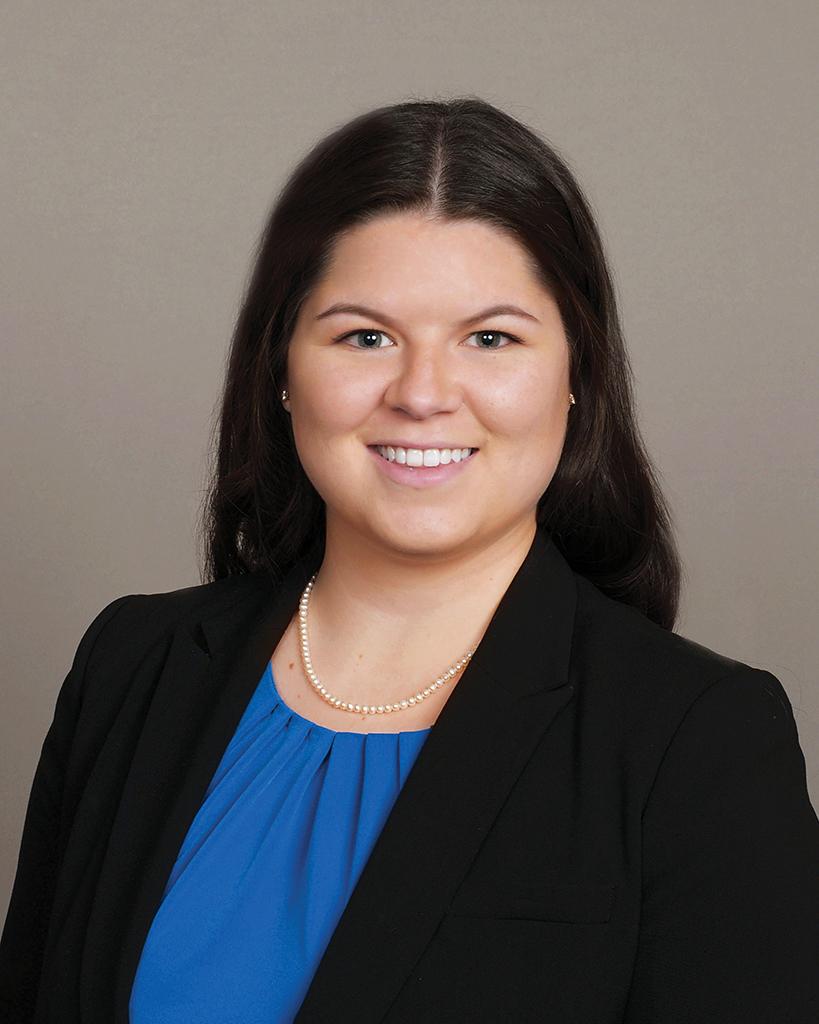
Alexis Hepburn
Undergraduate Student, Aerospace Engineering • Class of 2020 • Embry-Riddle Aeronautical University
Hepburn initiated Embry-Riddle’s first on-campus electric propulsion research, serving as primary researcher to design, manufacture and test a miniaturized, single-stage Stationary Plasma Thruster-type Hall thruster. She has presented her research on the pocket--sized Hall thruster at three international conferences, including the American Institute of Aeronautics and Astronautics Propulsion and Energy Forum.
Hepburn has interned at Honeywell Aerospace, Raytheon Missile Systems, Boeing Defense, Space and Security and the Seattle Museum of Flight, where she volunteered to mentor students and increase young women’s interest in aerospace and STEM. She currently serves as an academic mentor with Embry--Riddle’s College of Engineering and as a career services and corporate relations peer advisor for the university.
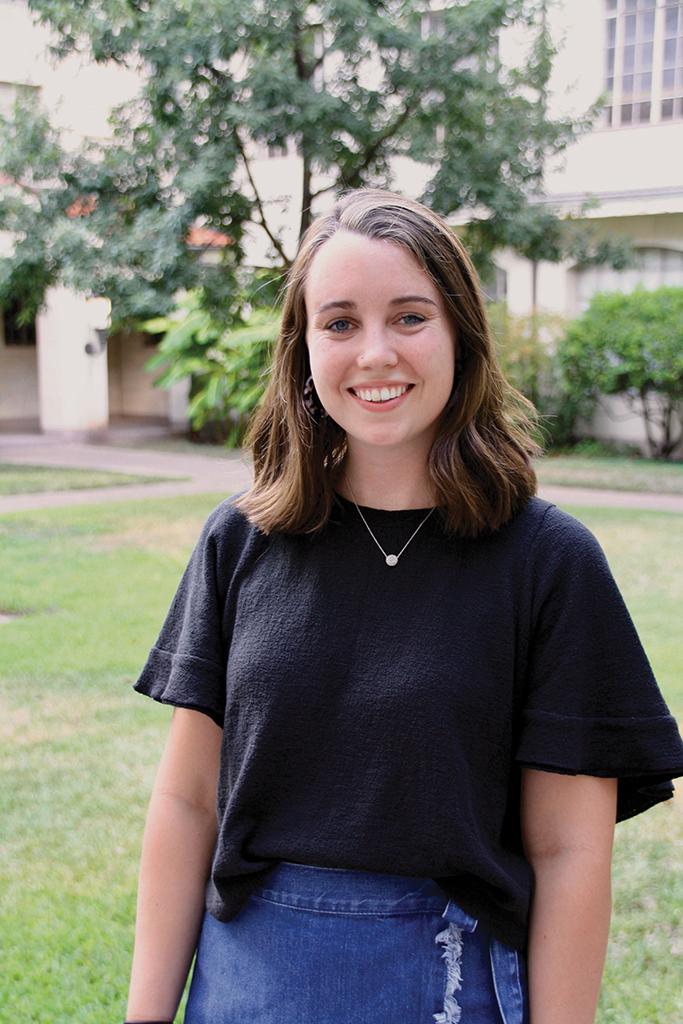
Chloe Johnson
Graduate Student, Aerospace Engineering • Class of 2020 • The University of Texas at Austin B.S. Engineering Mechanics • Class of 2018 • University of Wisconsin-Madison
Johnson is working to improve understanding of the next generation of eVTOL aircraft through her graduate research, which aims to validate the airworthiness of experimental designs and improve rotor aeroacoustics to reduce noise. She is investigating the performance and acoustics of coaxial, co-rotating rotors for eVTOL aircraft and is sharing the results of her experiments with Uber Technologies—the project’s funder—and the U.S. Army Research Laboratory.
As president of the Graduate Ladies of Aerospace and Mechanics organization, Johnson is working to increase diversity in her university’s aerospace department. She also has organized a STEM career fair for female students from low-income backgrounds.
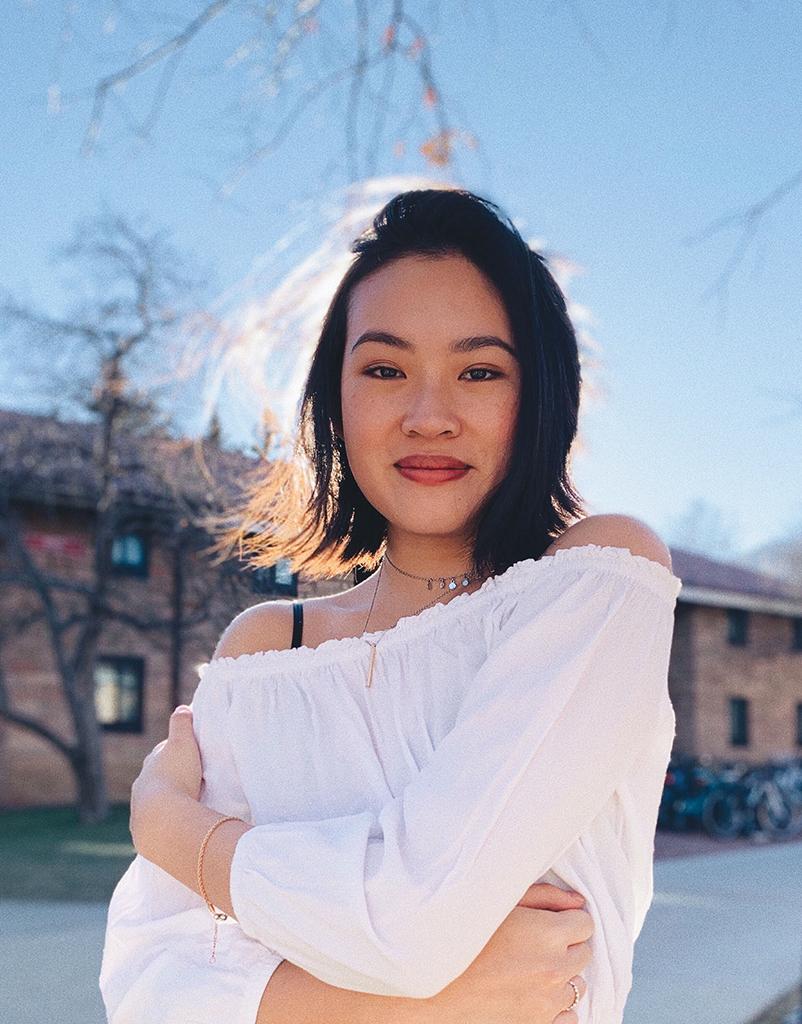
Michelle Lin
Undergraduate Student, Dual B.S. Aerospace Engineering Sciences and Applied Mathematics • Class of 2021 • University of Colorado Boulder
Lin’s bioastronautics research has focused on the applications of alternative reality technology within spacecraft habitat design. Through a NASA-funded virtual reality project, she readapted gaming software to create an augmented reality habitat and worked directly with NASA to develop a hybrid-reality spacecraft airlock. She is now designing a project to consider the effects of architectural and interior design principles on spatial awareness and perception in spacecraft habitat.
Lin founded the university’s chapter of Women of Aeronautics and Astronautics. She received the Women in Aerospace Foundation Scholarship and was chosen for the Brooke Owens Fellowship.
Lin also volunteers with campus STEM outreach efforts.
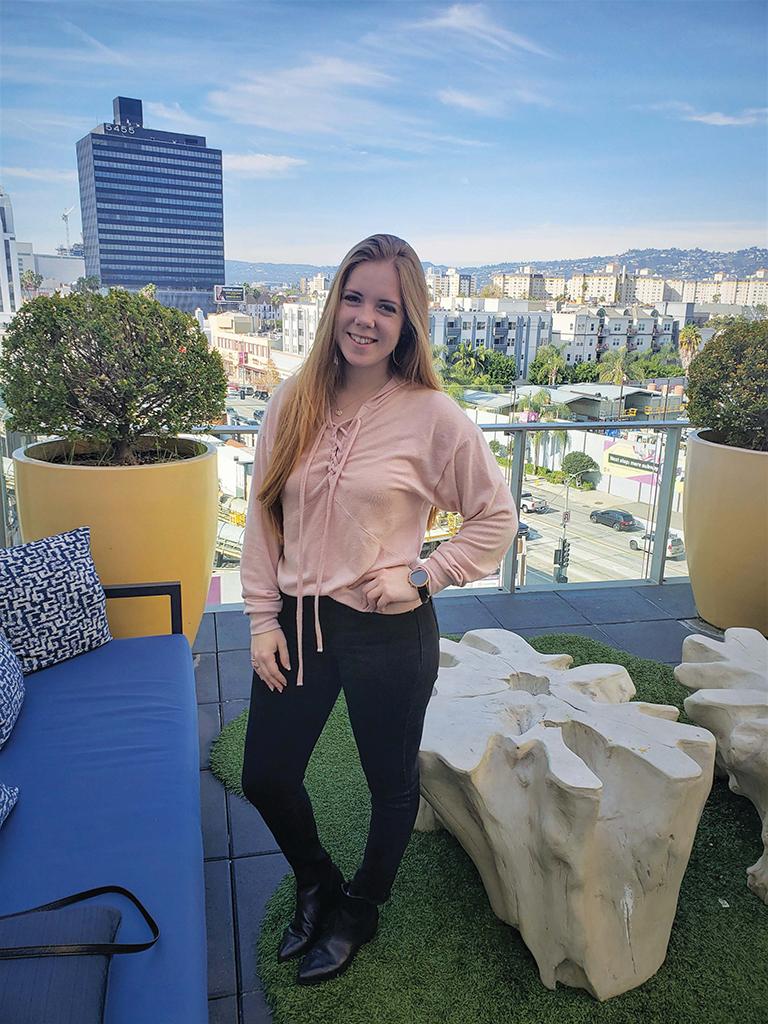
Julia Mihaylov
Graduate Student, Space Systems Engineering • Class of 2021 • Johns Hopkins University • B.S. Aerospace Engineering Class of 2019 • Embry-Riddle Aeronautical University
During her undergraduate research, Mihaylov served as co-lead of the Julia Language Ephemeris and Physical Constants Reader project through NASA’s Jet Propulsion Laboratory. Her work directly aided JPL’s flight project Psyche and led to a part-time position at JPL supporting the Europa Clipper mission.
Mihaylov was chosen for the Brooke Owens Fellowship—through which she interned at The Aerospace Corp.—and now is an alumni mentor to recent recipients of the fellowship. She served as editor-in-chief of the Horizons newspaper at Embry-Riddle, student vice president of Phi Kappa Phi Honor Society and chapter president for the Alpha Xi Delta Fraternity of Women.
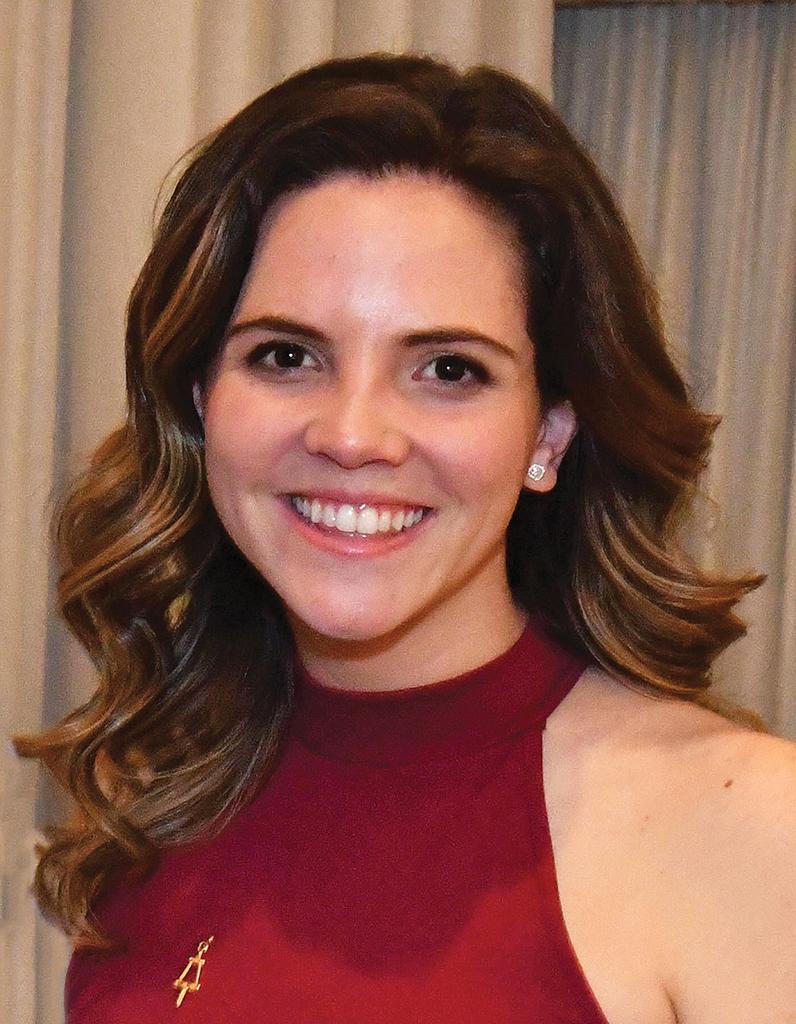
Victoria Pellerito
B.S. Mechanical Engineering • Class of 2020 • Lawrence Technological University
Pellerito was the lead undergraduate researcher on a project to develop a flapping-wing robot with three different modes of elastic wing-connections. She also participated in two projects through the New Mexico
Institute of Mining and Technology, designing an autonomous flight system for exploration of Titan and examining the effects of heated boundary layers found in nature.
She is the captain of Lawrence Technological University’s SAE Aero Design Team, which is working to develop a short takeoff-and-landing aircraft with a 10-ft. wingspan while aiming to carry as much payload as possible. In addition to serving as a mathematics and engineering tutor, she promotes STEM as chapter president of the Tau Beta Pi and Pi Tau Sigma honor societies.
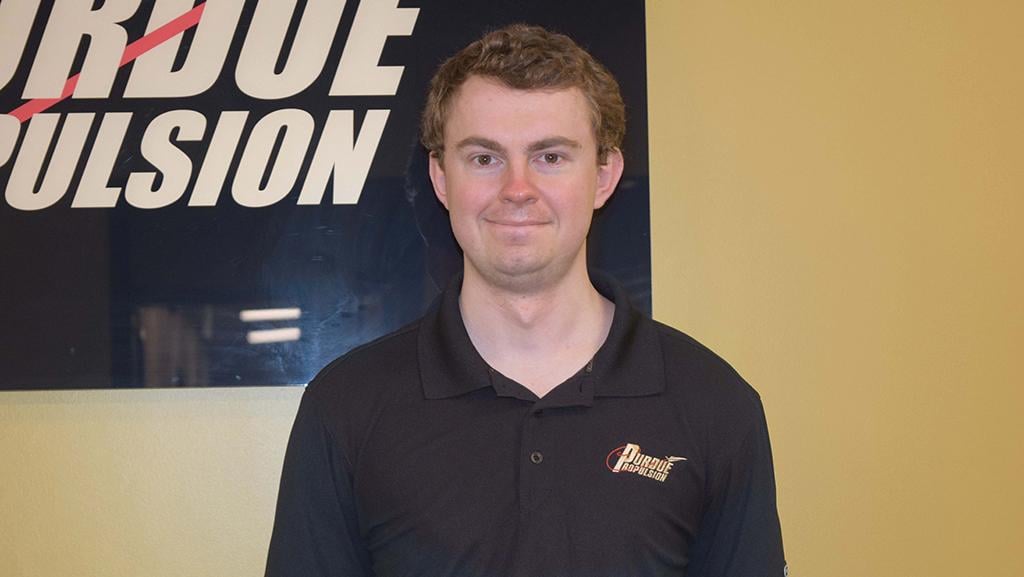
Ethan Plaehn
Graduate Student, Aeronautical and Astronautical Engineering • Class of 2022 • Purdue University • B.S. Aeronautical and Astronautical Engineering • Class of 2019 • Purdue University
Plaehn’s passion for developing advanced propulsion concepts grew from an internship at Aerojet Rocketdyne and a lead propulsion role in a Boeing program to research the fundamental properties of detonation propagation under flow conditions present in a rotating detonation engine (RDE). He is working to design a modular RDE—technology with the potential to improve the efficiency of modern combustion devices.
He also has developed and taught classes to high school seniors about subjects such as engineering design, 3D printing and robotics.
Plaehn is a member of the Sigma Gamma Tau honor society and a private pilot.
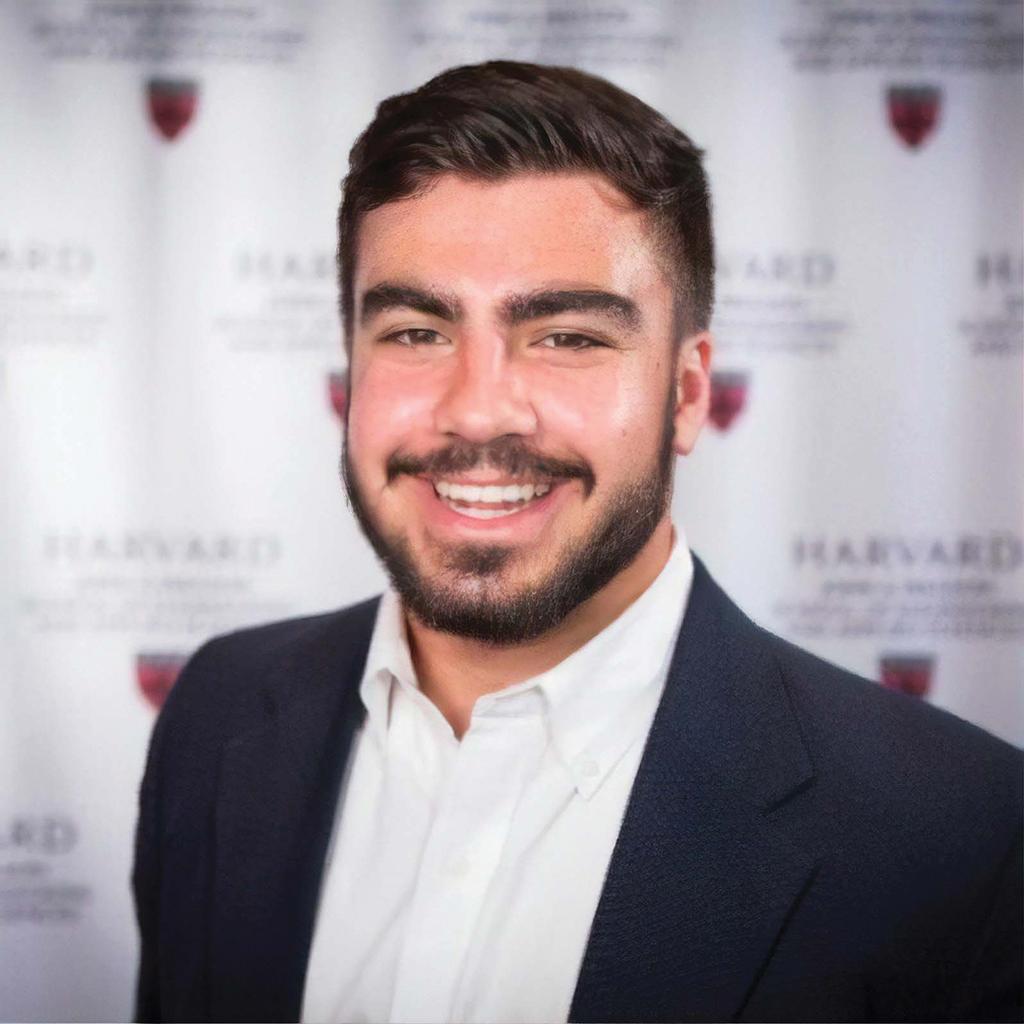
Simon Shuham
M.S. Aerospace Engineering • Class of 2019 • University of Colorado Boulder • B.S. Mechanical Engineering • Class of 2017 • Harvard College
During his undergraduate research, Shuham completed a project to design and test a deployable 0.5-m (1.6-ft.) radio antenna dish for cubesats for a small-satellite startup company. He has worked as a propulsion systems design engineer at United Launch Alliance and now is a propulsion engineer at Blue Origin, where he is helping to develop and design the BE-3U engine on the New Glenn rocket second stage.
Shuham serves on the board of the AIAA’s Pacific Northwest chapter and on the Seattle Museum of Flight’s Future Leaders team. He founded Harvard’s chapter of Students for the Exploration and Development of Space and spent a summer cycling across the country with Spokes America to teach STEM courses to hundreds of students.
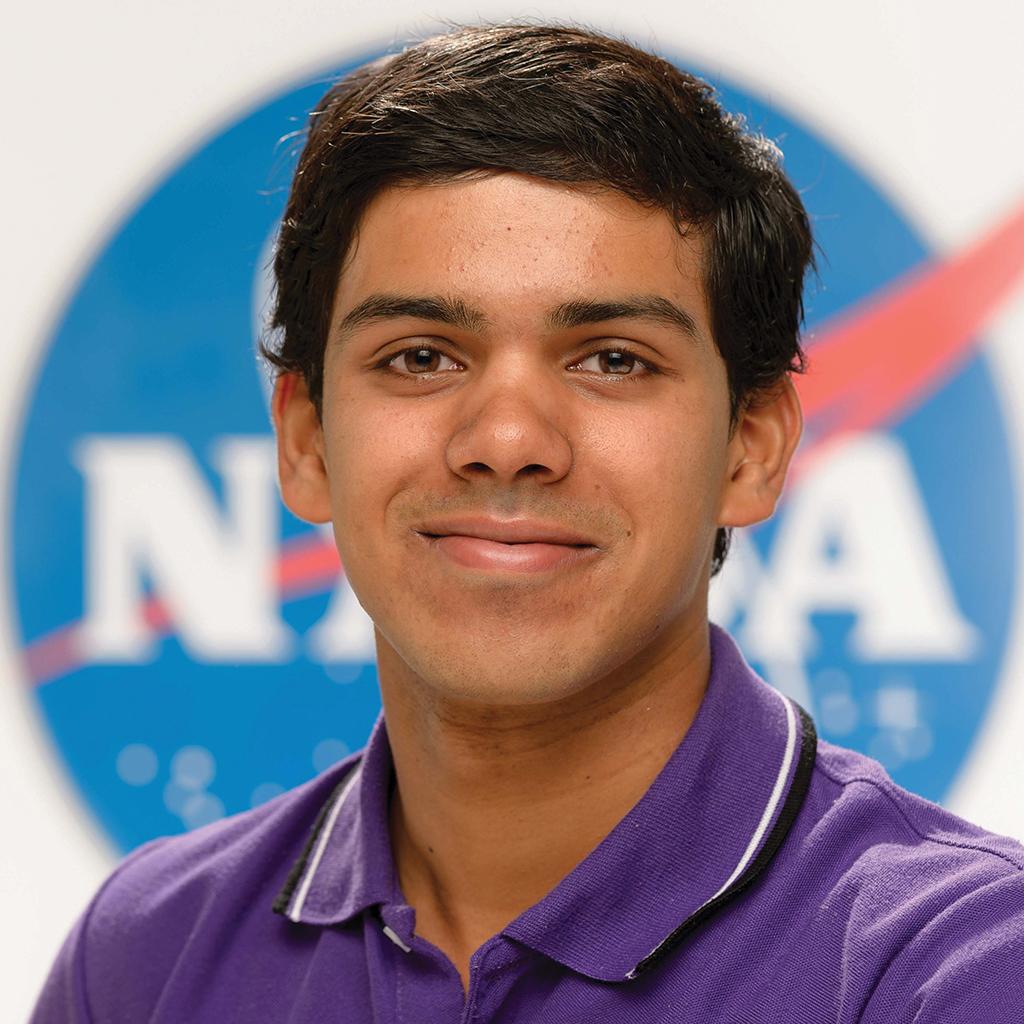
Gautham Viswaroopan
M.S. Aerospace Engineering Sciences • Class of 2019 • University of Colorado Boulder • B.S. Mechanical Engineering Sciences • Class of 2017 • University of Colorado Boulder
Viswaroopan is working to develop electric-field (E-field) antennas for spacecraft, including serving as project manager of the cubesat Compact Spaceborne Magnetic Observatory and designing more optimal E-field antennas. He has already completed a rocket deck segment of the Rapid Active Plasma Sounder, which will launch in July.
The challenges of being an international student led him to become an International Ambassador at the University of Colorado Boulder and the international chair of SEDS Earth, where he has grown the organization’s international chapters by 26 countries. He is leading SEDS’ GravityGames 2.0 initiative, in which international students will compete to design inventions that astronauts could make on a 3D printer aboard the International Space Station.
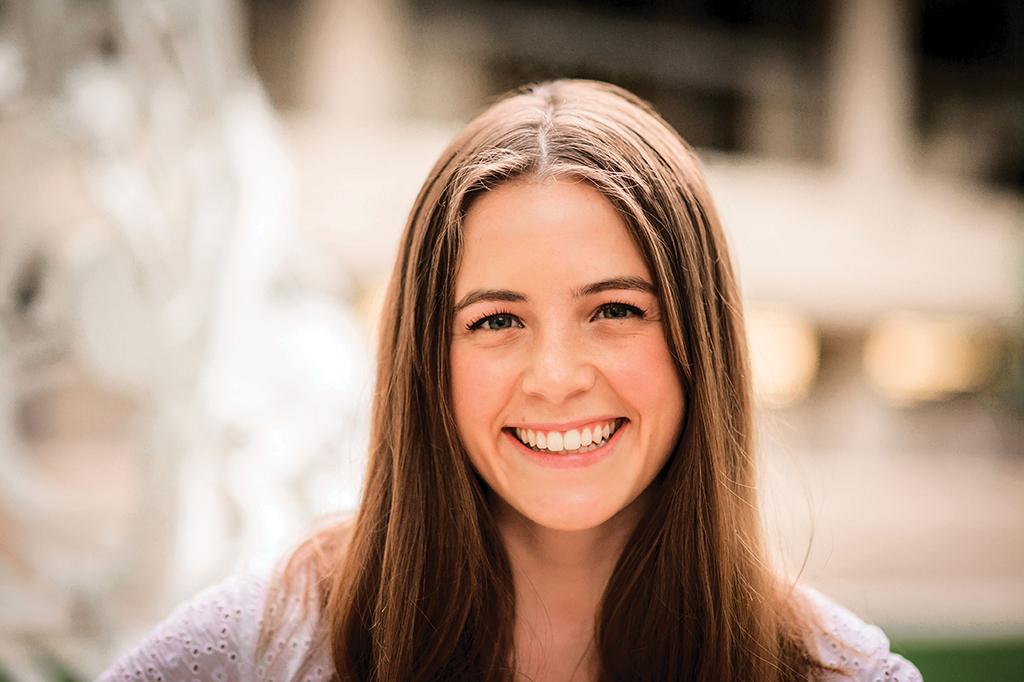
Laura Yenchesky
B.S. Mechanical Engineering • Class of 2019 • Massachusetts Institute of Technology
As an undergraduate researcher at MIT’s Space Telecommunications, Astronomy and Radiation Laboratory, Yenchesky led design and analysis efforts for NASA’s CubeSat Laser Infrared Crosslink mission, which aims to demonstrate the first full-duplex laser communications crosslink between two nanosatellites in low Earth orbit. Following internships at Millennium Space Systems, Orbital ATK and Aurora Flight Sciences, she now works full time as a mechanical systems engineer at Aurora Flight Sciences.
Yenchesky served as team coach on the MIT Gordon Engineering Leadership Program and as professional development chair for MIT Women in Aerospace Engineering. She was also captain of MIT’s Sport Pistol Team, which won the 2019 National Collegiate Championships.
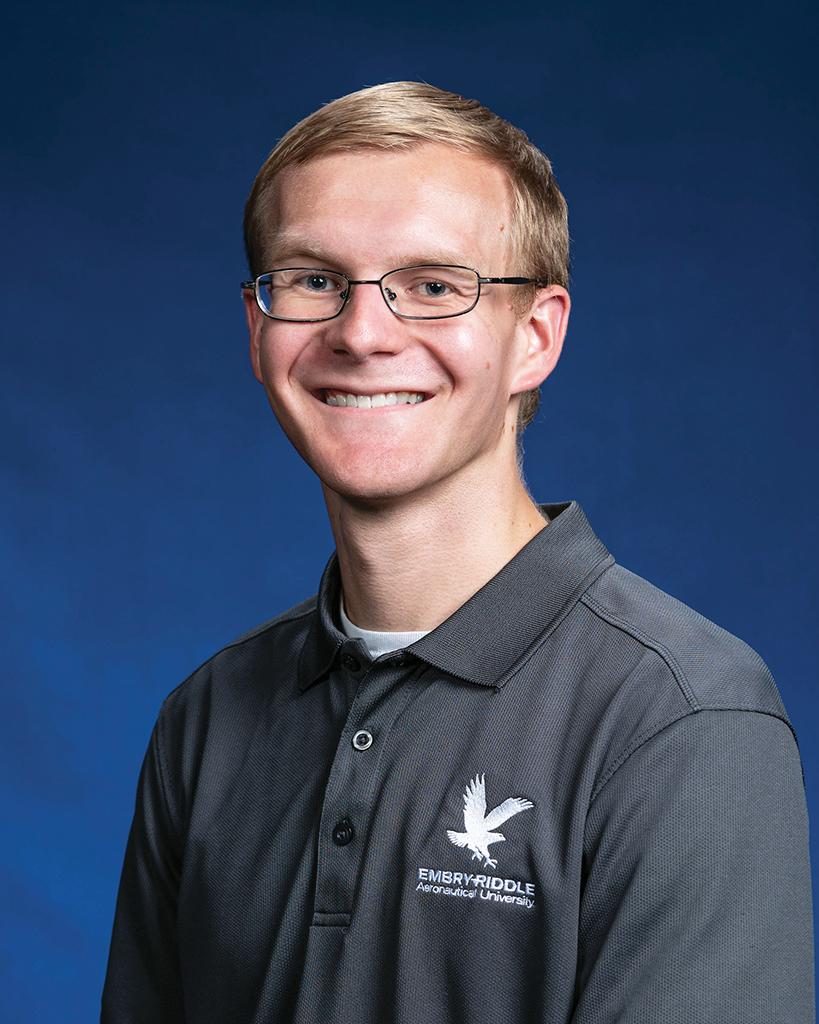
David Zuehlke
M.S. Aerospace Engineering • Class of 2019 • Embry-Riddle Aeronautical University • B.S. Engineering • Class of 2017 • Bob Jones University
Zuehlke’s research on optical orbit estimation with small telescopes seeks to provide an inexpensive way to keep track of the growing number of satellites in orbit. That research became a reality through the U.S. Air Force Research Laboratory’s (AFRL) Summer Faculty Fellowship Program and played a key role in a cooperative grant started jointly by Embry-Riddle and the AFRL.
He runs an astronomy STEM outreach event for middle school and high school students to enable them to view planets, stars and satellites through telescopes. During his undergraduate studies, he served as software team leader of the Bruins robot team at Bob Jones University.
AIAA 20 Twenties Judges
Mary Lynne Dittmar
President and CEO, Coalition for Deep Space Exploration
Kevin Duda
Principal Engineer and Group Lead, The Charles Stark Draper Laboratory
Lori Garver
Founder, Brooke Owens Fellowship
Daniel Jensen
Head of Engineering for Services, Propulsion and Power, Rolls-Royce
Joe Landon
Vice President Advanced Programs, Lockheed Martin
Kurt Polzin
Research and Development Engineer, NASA Marshall Space Flight Center
Timothee Pourpoint
Associate Professor, Purdue University
Laura Richard
Mission Manager, U.S. Air Force Program Office, United Launch Alliance
Craig Willis
Project Engineer, Gulfstream Aerospace Corp.
